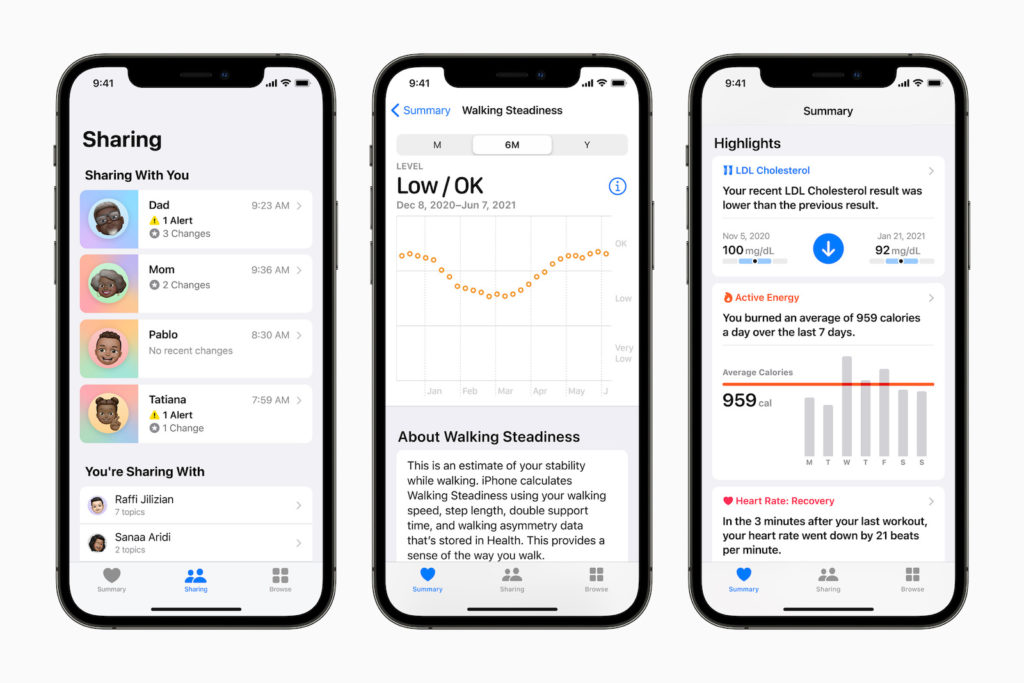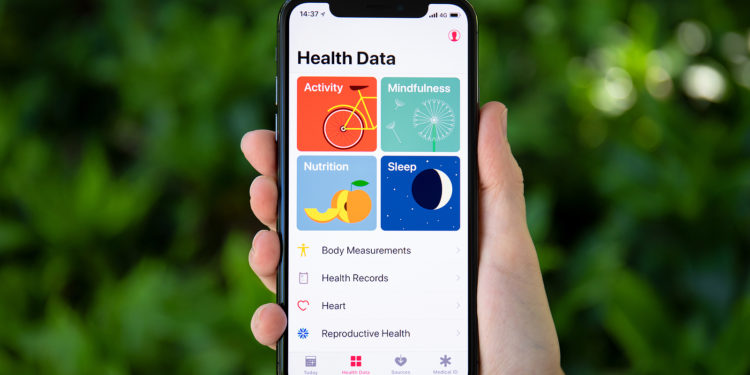Apple has added some new features to iOS 15 and expanded apps such as reminders, weather, etc. with interesting features, including the Health app.
Under iOS 15, extensive sharing functions were integrated into the Health app integratedthat allow users to keep track of a loved one's health data, as well as bonus features such as walking stability metrics and improvements in the presentation of lab results.
stability when walking
Walking Stability is a new health metric that uses data from iPhone to provide insight into a person's risk of falling. It uses algorithms that assess balance, strength, and gait using metrics such as walking speed, stride length, and walking asymmetry data. This allows iPhone users to receive an alert when they are at high risk of falling. The feature also offers curated exercises to improve gait stability.
Laboratory results become more understandable
Lab results imported into the Health app from a healthcare provider now include significantly more information about what the lab tested, the result received, what the result received means, and how the result compares to previous tests. It is clearly displayed whether a lab result is normal or out of range, so users can see at a glance if something is wrong. Lab highlights are displayed in the Health dashboard, while important lab values can be pinned for quick access.
COVID-19 test results and vaccines
iOS 15 supports the digital storage of COVID-19 vaccination records. Doctors or even countries can offer a QR code that iPhone users can scan to upload their vaccination records to the Health app. COVID-19 test results can also be stored, Apple says.
blood sugar highlights
Users who monitor their blood sugar levels can get highlights that show blood sugar levels during sleep and exercise. Apple has added interactive charts to make it easier for users to view and analyze their blood sugar data.
trends
In the Health app, the Trends feature analyzes shared data and shows at a glance how health metrics such as heart rate and activity level are developing. In iOS 15, users can choose whether they want to receive notifications when a new trend is detected in the health data.

sharing health data
In iOS 15, several sharing options were added to the Health app to share health data with family members. Health data can be shared with others starting in iOS 15, allowing family members to share health information or a child to better care for a parent. iPhone users can select specific health data to share, including heart health, activity, lab results, vitals, medical ID, cycle tracking, research studies, and more. When data is shared, only a summary of each topic trend is shared, not each data point. For example, when heart rate information is shared, the person with whom the data is shared will see a summary of the overall heart rate but not all of the heart rate data individually. The shared data will appear in the other person's Health app, making it quick and easy to access. Whenever updated health information is available, the person who sees the shared data will receive a notification to view it. Information about health trends will also be shared.
release notifications
There's also a built-in messaging feature to discuss health changes and metrics. Apple sends notifications when shared health data is updated, but it also sends alerts for high heart rate and irregular heart rhythms so that in the event of an emergency, the person can be notified. But beware: Apple warns that notifications are not instant and may take some time to appear. Notifications can also be sent for significant changes in the shared data categories, such as a sharp drop in activity or sleep, which is useful for providing extra support to those who need it.
sharing health data with doctors
Doctors' offices and hospitals that participate in Apple's Health Records feature can sign up to access patient data. From there, patients can choose whether they want to share their data with their doctors. The data is visible in a dashboard in the medical provider's health records system. This is an opt-in and participating medical facilities must use both the health records and data sharing features. The final versions of iOS 15 and Co. will be released soon. (Photo by Denys Prykhodov / Bigstockphoto)





